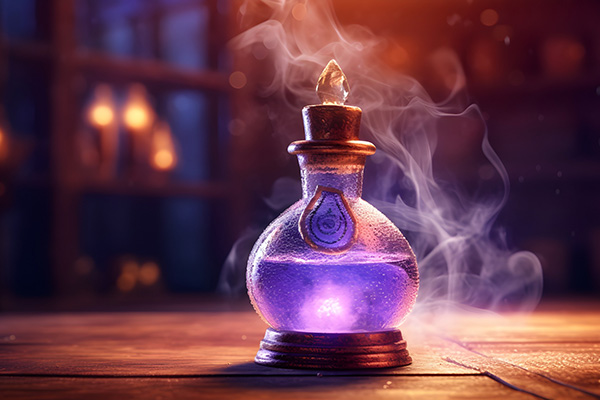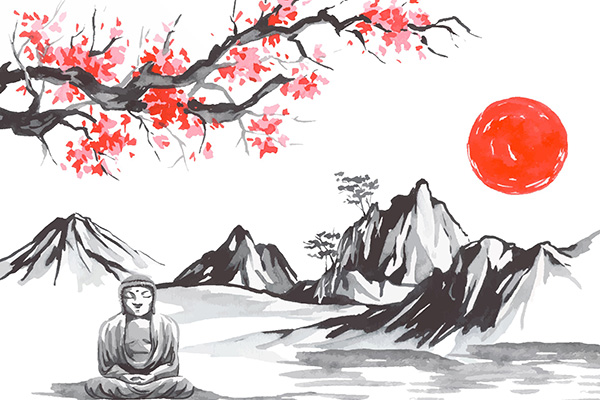spiritual self-care
Is Your ‘Friend’ A Toxic Energy Thief?
 Do you have a friend who constantly makes you feel unbalanced and drained, while adding no value to your life? We’ve all had that so-called ‘friend’ who doesn’t seem to care much about our well-being. Sometimes they don’t even seem to like us at all!
Do you have a friend who constantly makes you feel unbalanced and drained, while adding no value to your life? We’ve all had that so-called ‘friend’ who doesn’t seem to care much about our well-being. Sometimes they don’t even seem to like us at all!
They are that fair-weather friend who drains your energy and constantly exhibits toxic behaviors that destroy your inner peace, steal your joy, and disrupt your spiritual balance. Interacting with them increases your stress or anxiety, and even triggers a sense of disconnection from your true self.
If you have such a “friend,” consider this a serious wake-up call. After all, with a friend like that, who needs enemies? And if you have more than one such friend, consider this an urgent intervention!
The truth is that having an energy vampire masquerading as a friend in your life poses significant spiritual dangers and negative effects on your overall health and well-being.
Constant interaction with someone who is unkind and unsupportive hinders your personal and spiritual growth. Instead of uplifting and encouraging you, they serve only to hold you back and may even discourage you from pursuing your dreams. These people are not your friends.
It reminds me of the karate classes I used to take. We were taught to have ‘situational awareness.’ In karate, this refers to being fully aware of your surroundings, including potential threats, opportunities, and obstacles during training, sparring, or self-defense scenarios. It involves being mentally present and observing the environment, the opponent, and any relevant factors that could affect the outcome of a situation.
Using Essential Oils To Enhance Your Psychic Awareness
 Essential oils have many esoteric uses beyond traditional aromatherapy. In fact, many experienced spiritual seekers use essential oils in their daily practices. But what is less well known is that these magical oils can also be used to enhance intuition and promote psychic awareness.
Essential oils have many esoteric uses beyond traditional aromatherapy. In fact, many experienced spiritual seekers use essential oils in their daily practices. But what is less well known is that these magical oils can also be used to enhance intuition and promote psychic awareness.
Aromatic substances also help increase focus and clarity during meditation, divination, energy healing, and psychic reading. By engaging the sense of smell, you can more effectively anchor your awareness in the present moment, reduce distractions, and promote a state of mindfulness or psychic attunement to open your channels of intuition. I also feel more attuned to subtle energies and spirit presences when I use aromatherapy in my psychic work.
Essential oils are a wonderful spiritual tool that promote relaxation, mental clarity and emotional balance, which in turn creates a conducive environment for exploring your intuition and inner awareness.
Smell is closely linked to the limbic system in the brain, which is associated with emotions, memories, and instinctual responses. When we encounter a particular scent, it can evoke strong emotional or subconscious reactions. In spiritual practices, certain scents can trigger deep-seated feelings or associations, helping to create a particular mental or emotional state conducive to psychic experiences.
Overall, the power of scent and aroma in spiritual and esoteric practices is multifaceted, involving a combination of sensory, psychological, cultural, and symbolic factors. Aromas serve as powerful tools for creating sacred spaces, enhancing psychic experiences, and facilitating inner transformation through their profound influence on the mind, body, and spirit.
Substance Abuse Destroys Relationships And Families
 We all put a lot of time, effort, and resources into our relationships. From dating to marriage and parenthood, each stage comes with its own mix of joys and challenges. But amidst these milestones, it’s natural to ask: Is our relationship nurturing our spiritual well-being?
We all put a lot of time, effort, and resources into our relationships. From dating to marriage and parenthood, each stage comes with its own mix of joys and challenges. But amidst these milestones, it’s natural to ask: Is our relationship nurturing our spiritual well-being?
Think about the impact your partner has on your mental health and spiritual well-being. Is your relationship deepening your connection with God, Source, Spirit, or the Divine? Is it nurturing and protecting your children and loved ones? Or do you feel a subtle drift away from what really matters?
It’s a common scenario — an intimate relationship starts to fade as priorities shift. Maybe your partner chooses time with friends over quality family moments. Perhaps hobbies or habits take over, eroding intimacy and trust.
This isn’t just a personal story; it’s a broader reality with serious consequences. Children left wondering where a missing parent is, while the other struggles alone as a single parent, trying to juggle too much. This absence of care and nurture affects children’s personal and spiritual growth, leaving lasting echoes into their adulthood.
Alcohol and drug abuse often sneak into many of these situations, silently corroding relationships and families from within. In my spiritual work, I’ve met many souls grappling with failing marriages and domestic chaos overshadowed by substance abuse and addiction.
If you’re stuck in such a relationship, ask yourself why you’re staying. Love shouldn’t coexist with self-destruction. If your partner’s commitment wavers, consider where your spiritual path meets theirs. Sometimes, the toughest choices lead to healing.
The Meditative Art Of Sumi-e Painting
 As a spiritual advisor and artist, I’ve always been drawn to the ways in which art and spirituality intersect to offer pathways to deeper self-awareness and tranquility.
As a spiritual advisor and artist, I’ve always been drawn to the ways in which art and spirituality intersect to offer pathways to deeper self-awareness and tranquility.
One such path that has had a profound impact on my life is Sumi-e painting, also known as suibokuga or ‘ink wash painting.’ It is a traditional Japanese painting technique that uses black ink, typically in varying concentrations, to create brushstroke-based works of art.
Sumi-e is characterized by its minimalism, simplicity, and emphasis on capturing the essence or spirit of the subject rather than its literal representation.
Paintings often feature subjects such as landscapes, flowers, birds and other natural elements. Artists use various brush techniques to create different textures, tones, and depths using only black ink on absorbent paper or silk.
The art form has deep roots in Zen Buddhism, which emphasizes spontaneity, simplicity, and harmony with nature. Practitioners often meditate before painting to cultivate a clear and focused mind, which they believe enhances their ability to express the essence of the subject.
Sumi-e painting has had a significant influence on various art forms, including calligraphy and other East Asian brush painting styles. It continues to be practiced and appreciated for its timeless elegance and ability to evoke profound emotions with seemingly simple brush strokes.
Grieving The Loss Of Loved Ones With Grace
 Few of us have not experienced the loss of a loved one, a parent, a partner or even a child. Most of us have also witnessed or experienced the many ways in which people try to cope with such an insurmountable loss.
Few of us have not experienced the loss of a loved one, a parent, a partner or even a child. Most of us have also witnessed or experienced the many ways in which people try to cope with such an insurmountable loss.
Coping with the huge gaping hole that such a loss leaves in our lives can have a negative impact on people’s behaviour. Some turn to extremes: alcohol, drug abuse, overeating, prescription drugs, or any of the other things people use to numb their pain and deflect the overwhelming feelings associated with loss and grief.
What we ultimately learn is that there is no set time frame in which such profound pain can be dealt with. It can take weeks, months, years or even decades for some. But even when the worst is over, we never really get over the sense of loss. We simply learn to cope and get on with our lives, forever changed, as best we can.
However, the greatest tribute we can pay the loved ones we have lost is to grieve with grace and dignity. Abusing substances or indulging in other distractions may temporarily numb our pain, but how does that honour the memory of the one we professed to care so much about? It also does not allow us to confront and process our emotions in a healthy and constructive manner. Grieving is natural and necessary. When we try to avoid our grief, we miss out on opportunities for personal growth, self-reflection, and ultimately finding peace with the loss.
Replace Nighttime Overthinking With Morning Clarity
 As night falls and the world quiets down, our minds often do the opposite. Many of us find ourselves caught in a relentless tide of overthinking as we replay the past and stress about the future. This mental whirlwind of worry can leave us feeling mentally foggy and emotionally drained, far from our true selves.
As night falls and the world quiets down, our minds often do the opposite. Many of us find ourselves caught in a relentless tide of overthinking as we replay the past and stress about the future. This mental whirlwind of worry can leave us feeling mentally foggy and emotionally drained, far from our true selves.
But within all this turmoil lies a powerful opportunity for personal growth and empowerment. How is this possible? Well, the key to ending the constant spiral and realigning ourselves with our highest good lies in cultivating greater intuitive awareness and mental clarity.
Overthinking at night is a common problem for many of us. In the silence of the night, after being on autopilot all day, our overactive minds become a breeding ground for worry, fear, and regret. Over time, this leads to a vicious cycle of anxiety and insomnia, which leads to more stress the next day, which leads to more anxiety and insomnia the next night, and so on.
The results are not only that we feel constantly tired and energetically drained, but we also lose our sense of self and connection to our soul purpose. Feeling energetically drained and disconnected from our authentic selves, we begin to question our choices and direction in life, leading to increased anxiety and decreased self-esteem. It becomes a very toxic spiral that is devastating to our physical, mental, emotional and spiritual well-being!
Embrace Life’s Turbulence With The Right Attitude
 With the many ups and downs we face in life, it is sometimes possible to feel euphoric one moment and utterly devastated the next. Yes, life is challenging at times. But Spirit says that our attitude makes all the difference.
With the many ups and downs we face in life, it is sometimes possible to feel euphoric one moment and utterly devastated the next. Yes, life is challenging at times. But Spirit says that our attitude makes all the difference.
Life’s emotional roller coaster is an inevitable part of the human experience. However, by choosing the right attitude, we can transform this journey into an opportunity for growth, learning, and profound spiritual awakening. If we choose the right attitude, it can soften the emotional roller coaster ride of life.
Our soul purpose requires that there be times of great happiness and deep sorrow, for it is through successes and hardships that we learn how to evolve spiritually.
But when we choose to trust the process and embrace our journey with the right attitude, it becomes much easier to deal with the stressful issues and demands of everyday life.
Our attitude toward life’s ups and downs plays a pivotal role in shaping our experiences. By adopting the right attitude, we can greatly reduce the emotional turbulence that accompanies life’s challenges. It’s like putting a cushion in the seat of a roller coaster – it doesn’t eliminate the dips and drops, but it does make the ride more bearable!